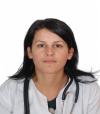Suggest Treatment For Spina Bifida Occulta In A Child

Posted on
Sat, 9 Jan 2016
Medically reviewed by
Ask A Doctor - 24x7 Medical Review Team
 Sat, 9 Jan 2016
Answered on
Sat, 9 Jan 2016
Answered on
 Thu, 11 Feb 2016
Last reviewed on
Thu, 11 Feb 2016
Last reviewed on
Question : our 6 year old son is still in nappies day and night. he isn't aware when he needs a pee or poo, and can also be unaware after he has done something. he is the youngest of 6 children and we didn't have any problems getting any of the others toilet trained.
Brief Answer:
Need more details
Detailed Answer:
Hi and thanks for your query.
I understand your concern and I will try to help you,but first I need for some more details.
Do you encourage your son to go to bathroom?
Does he hesitate to go to bathroom?
Does he have any complain?
Does he feel constipated?
While he feel awareness for both,pooing and peeing it may be due more to any emotional issue.
All the best
Need more details
Detailed Answer:
Hi and thanks for your query.
I understand your concern and I will try to help you,but first I need for some more details.
Do you encourage your son to go to bathroom?
Does he hesitate to go to bathroom?
Does he have any complain?
Does he feel constipated?
While he feel awareness for both,pooing and peeing it may be due more to any emotional issue.
All the best
Above answer was peer-reviewed by :
Dr. Raju A.T


He didn't have a problem with sitting on the toilet.
He doesn't get constipated.
He isn't aware when he needs the toilet.
He sometimes thinks he has been when he hasn't.
Educational physiologist says that it isn't a behavioural issue.
Both nursery and school have also tried to toilet train him.
He doesn't get constipated.
He isn't aware when he needs the toilet.
He sometimes thinks he has been when he hasn't.
Educational physiologist says that it isn't a behavioural issue.
Both nursery and school have also tried to toilet train him.
Brief Answer:
Contact with a neurologist
Detailed Answer:
Hi dear again and apologize for late replay.
As awareness of pooing and peeing have no relation with reasons I have mentioned above and you refer that educational physiologist " says that it isn't a behavioral issue",than you should contact with a neurologist to exclude any organic issue .
Doctor should exclude:
1.spina bifida( occulta (spina bifda is hidden)
This is a mild form of spina bifida which is very common. . Often people only become aware that they have spina bifida occulta after having a back x-ray for an unrelated problem. However, for a few (about 1 in 1,000) there can be associated problems.
For people with spina bifida occulta, there may be associated difficulties which may include: foot deformity, weakness and reduced sensation of the legs, change in hand function, bladder infections and incontinence and bowel problems.
Specialist scanning procedures such as MRI (magnetic resonance imaging) give a clear picture of the nerves and spinal column and the neurologist will be able to advise on the most appropriate treatment.
2.Sacrococcygeal teratoma (SCT) is a type of tumor known as a teratoma that develops at the base of the coccyx (tailbone)
Hence in my opinion contact with a neurologist .
All the best
Contact with a neurologist
Detailed Answer:
Hi dear again and apologize for late replay.
As awareness of pooing and peeing have no relation with reasons I have mentioned above and you refer that educational physiologist " says that it isn't a behavioral issue",than you should contact with a neurologist to exclude any organic issue .
Doctor should exclude:
1.spina bifida( occulta (spina bifda is hidden)
This is a mild form of spina bifida which is very common. . Often people only become aware that they have spina bifida occulta after having a back x-ray for an unrelated problem. However, for a few (about 1 in 1,000) there can be associated problems.
For people with spina bifida occulta, there may be associated difficulties which may include: foot deformity, weakness and reduced sensation of the legs, change in hand function, bladder infections and incontinence and bowel problems.
Specialist scanning procedures such as MRI (magnetic resonance imaging) give a clear picture of the nerves and spinal column and the neurologist will be able to advise on the most appropriate treatment.
2.Sacrococcygeal teratoma (SCT) is a type of tumor known as a teratoma that develops at the base of the coccyx (tailbone)
Hence in my opinion contact with a neurologist .
All the best
Above answer was peer-reviewed by :
Dr. Chakravarthy Mazumdar


regarding the spins bifida. my brother lost a son at 5 days due to spins bifida and then his daughter, my niece aborted a boy who had the same. when my partner was pregnant with our first son who is now 16, the test came back high for it, but after a scan it was ruled out. the problem in my family seems to be with boys. does this make it more likely?
Brief Answer:
CHANCES ARE INCREASED
Detailed Answer:
Hi and thanks for your query.
Spina bifida is a complex condition that is likely caused by the interaction of multiple genetic and environmental factors. Some of these factors have been identified, but many remain unknown.
Most cases of spina bifida are sporadic, which means they occur in people with no history of the disorder in their family.
A small percentage of cases have been reported to run in families; however, the condition does not have a clear pattern of inheritance.
First-degree relatives (such as siblings and children) of people with spina bifida have an increased risk of the condition compared with people in the general population.
Hence chances to e a spina bifida occulta are increased.
God bless you
CHANCES ARE INCREASED
Detailed Answer:
Hi and thanks for your query.
Spina bifida is a complex condition that is likely caused by the interaction of multiple genetic and environmental factors. Some of these factors have been identified, but many remain unknown.
Most cases of spina bifida are sporadic, which means they occur in people with no history of the disorder in their family.
A small percentage of cases have been reported to run in families; however, the condition does not have a clear pattern of inheritance.
First-degree relatives (such as siblings and children) of people with spina bifida have an increased risk of the condition compared with people in the general population.
Hence chances to e a spina bifida occulta are increased.
God bless you
Above answer was peer-reviewed by :
Dr. Vaishalee Punj


He has been diagnosed with Ehlers Danlos Syndrome Type 3 (Hyper mobility Type), his 11 year old sister and 16 year old brother has also, along with myself. We haven't had these problems with the others, but could there be a connection? Thanks
Brief Answer:
Explanation is given below
Detailed Answer:
Hi and thanks for your query.
Ehlers-Danlos per se doesn't cause any peeing and/or pooing issue,but if it associated with other health issue such as spina bifida occulta the mechanisms that may cause EDS to become symptomatic in the presence of spina bifida could be:
i. Sliding of tissues down from their normal resting position when in the upright position, and or
ii.. Hypermobility at in the vertebral bones at the very top of the neck, leading to changes in the position / angle of these bones when upright.
But this should be confirmed only by doing any exam,at least an X-RAY .
All the best
Explanation is given below
Detailed Answer:
Hi and thanks for your query.
Ehlers-Danlos per se doesn't cause any peeing and/or pooing issue,but if it associated with other health issue such as spina bifida occulta the mechanisms that may cause EDS to become symptomatic in the presence of spina bifida could be:
i. Sliding of tissues down from their normal resting position when in the upright position, and or
ii.. Hypermobility at in the vertebral bones at the very top of the neck, leading to changes in the position / angle of these bones when upright.
But this should be confirmed only by doing any exam,at least an X-RAY .
All the best
Above answer was peer-reviewed by :
Dr. Prasad

Answered by

Dr. Vjollce Mbiarra
OBGYN, Maternal and Fetal Medicine
Practicing since :2006
Answered : 1572 Questions
Get personalised answers from verified doctor in minutes across 80+ specialties



